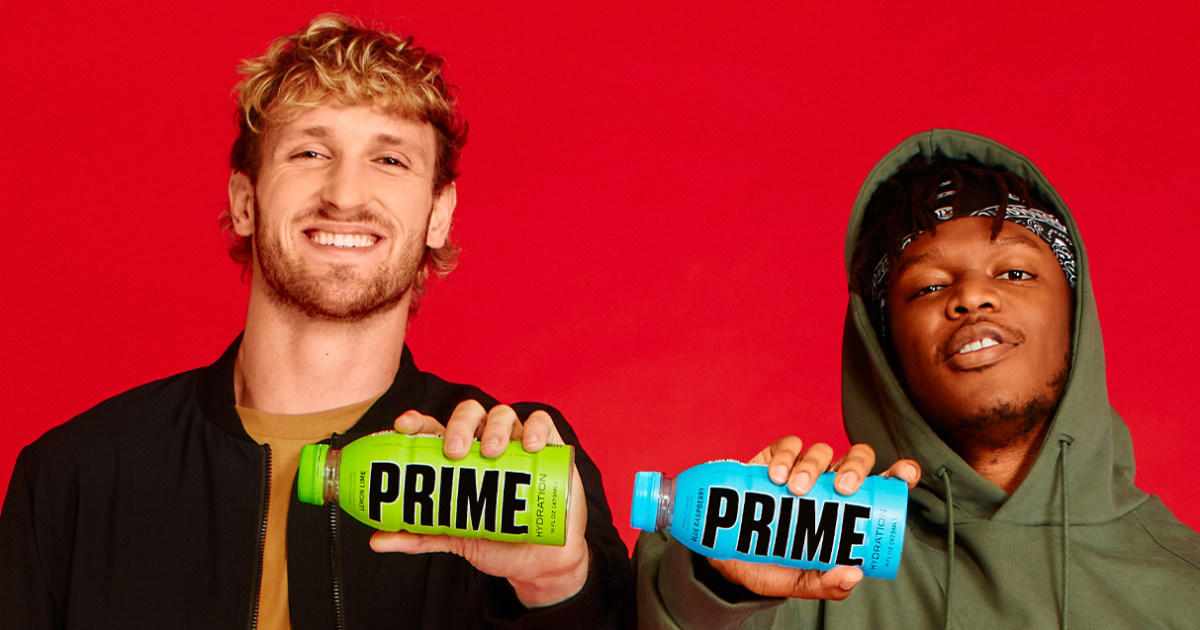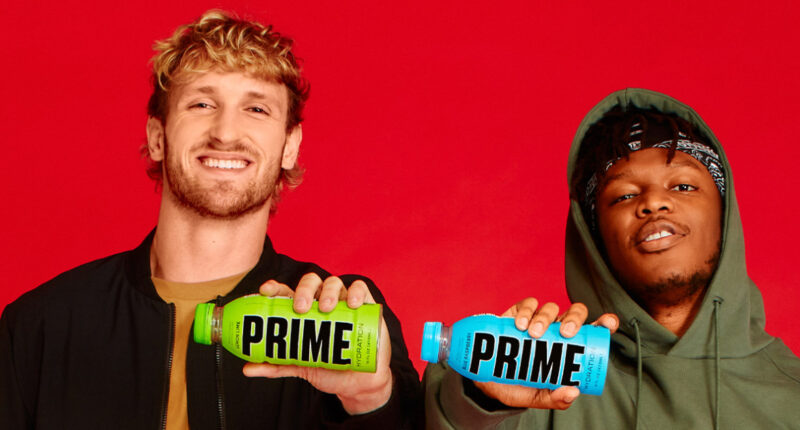
Senate Majority Leader Chuck Schumer is urging the Food and Drug Administration to investigate an energy drink from YouTube stars Logan Paul and KSI, which Schumer says has an “eye-popping” amount of caffeine and seems to target kids in its marketing on social media.
The beverage, PRIME Energy, contains 200 milligrams of caffeine — the equivalent of more than two cups of coffee, roughly six Coca-Cola cans or 2.5 cans of Red Bull.
“Two-hundred milligrams is a lot for a child,” said Dr. Ran Goldman, a pediatrician and professor of pediatrics at the University of British Columbia.
Goldman and other pediatric nutrition experts said children should not consume any amount of caffeine.
Even a little bit of caffeine can cause kids to develop anxiety, jitters, decreased appetite or increased heart rate or blood pressure, according to Chenin Nickel, an assistant professor in the Department of Nutrition at the University of Nevada, Reno.
“If kids drink too much, it is actually possible to overdose on caffeine,” Nickel said. “It is a stimulant that affects the central nervous system, so if kids overdose on caffeine, that can result in seizures, abnormal heart rhythms, coma and even death.”
Paul and KSI launched the PRIME beverage brand last year. Its first product, a sports drink called PRIME Hydration, does not contain caffeine. PRIME Energy, meanwhile, debuted in January and has roughly the same amount of caffeine as some other popular energy drinks, such as 5-hour Energy and Ghost, but significantly more than Monster or Red Bull.
“Kids see it on their phones or as they scroll, and they actually need it and the problem here is that this product has so much caffeine in it that it puts Red Bull to shame, but unlike Red Bull, this product has one true target market: children under the age of 18,” said Schumer, D-N.Y.
The PRIME website and PRIME Energy label both warn that the drink is not recommended for children under age 18, people sensitive to caffeine, pregnant women or women who are nursing.
“As a brand, our top priority is consumer safety, so we welcome discussions with the FDA or any other organization regarding suggested industry changes they feel are necessary in order to protect consumers,” PRIME’s representatives said.
They added that PRIME Energy “contains a comparable amount of caffeine to other top selling energy drinks, all falling within the legal limit of the countries it’s sold in.”
In the U.S., many energy drinks are considered dietary supplements, which means companies can produce and sell without notifying the FDA. As a result, the beverages are difficult to regulate, though the FDA can still restrict ingredients that pose a “significant or unreasonable risk of illness or injury” or require changes to a product’s label.
For healthy adults, the FDA says it’s safe to consume up to 400 milligrams of caffeine per day — the equivalent of about four or five cups of coffee.
Among children, however, the American Academy of Pediatrics discourages caffeine consumption because it can be addictive and potentially stunt brain development. Caffeinated energy drinks in particular “have no place in the diet of children and adolescents,” the academy has said, since they don’t provide a health benefit over water and may contain excessive sugar and calories.
Goldman said he often treats young patients with sleep disturbances due to energy drink consumption. That can be especially dangerous for teens who are just starting to drive, he added, since it can decrease their reaction time. Energy drinks also run the risk of accelerating kids’ heart rates when mixed with ADHD medications, Goldman said.
He added that he sees adolescents in his emergency department who were influenced by social media to consume energy drinks. The beverages are easily accessible to kids, Goldman said, since they’re sold in grocery stores.
“It’s becoming a trend,” he said. “They used to seek the new shirt or pants or shoes. Now it’s what drink is cool to drink.”
Schumer expressed concern on Sunday that children may be drinking PRIME without their parents’ knowledge, calling it “one of the summer’s hottest status symbols for kids.”
According to the National Institutes of Health, energy drinks are the most popular dietary supplement consumed by U.S. teens and young adults next to multivitamins. Nearly one-third of teens between 12 and 17 years consume them regularly.
A 2022 analysis of TikTok videos found that most videos featuring energy drinks portrayed the beverages favorably and had high levels of engagement. The authors concluded that TikTok “may encourage heightened consumption” of energy drinks among minors.
Source: | This article originally belongs to Nbcnews.com









